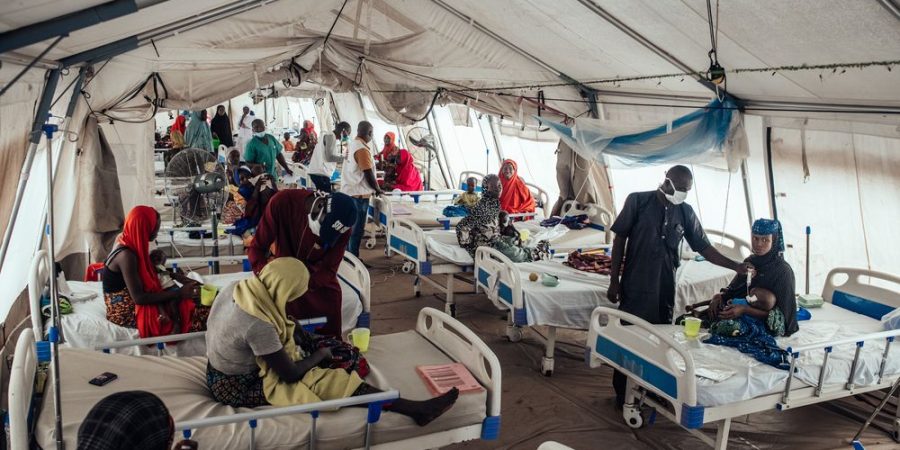Diphtheria cases and deaths have risen sharply in Somalia this year, with health officials warning that vaccine shortages and cuts in US assistance have severely hampered the response.
Hussein Abdukar Muhidin, Director General of Somalia’s National Institute of Health, said: “More than 1,600 cases, including 87 deaths, have been recorded, up from 838 cases and 56 deaths in all of 2024.”
Diphtheria is a bacterial disease that causes swollen glands, breathing difficulties and fever, and mostly affects children. It is preventable with a vaccine that became widely available in the mid-20th century.
Although childhood immunisation rates in Somalia have improved over the past decade, hundreds of thousands of children remain unprotected. The consequences have been devastating for families like that of Deka Mohamed Ali, who fled fighting between government forces and Islamist militants in the central town of Ceeldheere three months ago.
“All four of my children, none of whom was vaccinated, contracted diphtheria,” she said. “My 9-year-old daughter recovered, but my 8-year-old son died and two toddlers are now being treated at a hospital in Mogadishu. My children got sick and I just stayed at home because I did not know it was diphtheria.” From the bedside of her 3-year-old son Musa Abdullahi, she described how his throat had swollen to “the size of a lemon” from the infection.
Somalia’s Health Minister, Ali Haji Adam, admitted the government had been unable to secure sufficient vaccines. He said: “The government has struggled to procure enough vaccines due to a global shortage and US aid cuts are making it difficult to distribute the doses it has. The US aid cut terribly affected the health funds it used to provide to Somalia. Many health centres closed. Mobile vaccination teams that took vaccines to remote areas lost funding and now do not work.”
Muhidin separately echoed his concerns, also citing the closure of health centres.
According to US government data, overall foreign assistance commitments to Somalia stand at $149 million for the fiscal year ending on 30 September, compared with $765 million the previous year.
A US State Department spokesperson defended Washington’s position, saying: “The United States continues to provide lifesaving foreign assistance in Somalia. America is the most generous nation in the world, and we urge other nations to dramatically increase their humanitarian efforts.”
Aid agencies have warned of a wider health crisis triggered by funding cuts. Save the Children said last month that the closure of hundreds of health clinics in Somalia had contributed to “a doubling in the number of combined cases of diphtheria, measles, whooping cough, cholera and severe respiratory infections since mid-April.”
The cuts are not limited to the US. Britain, France, Germany and other major Western donors are also reducing aid budgets.
Meanwhile, Somalia’s own government has come under criticism from doctors and rights groups for failing to adequately fund health services. Amnesty International reported that the health sector received just 4.8% of the national budget in 2024, down from 8.5% the previous year.
The Health Ministry did not respond to questions on this criticism but has said it is planning a vaccination drive, without giving details of when it will begin.
Boluwatife Enome
Follow us on:



